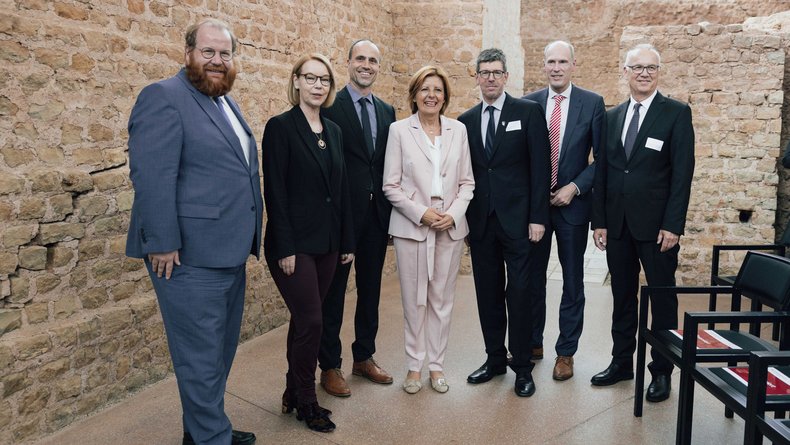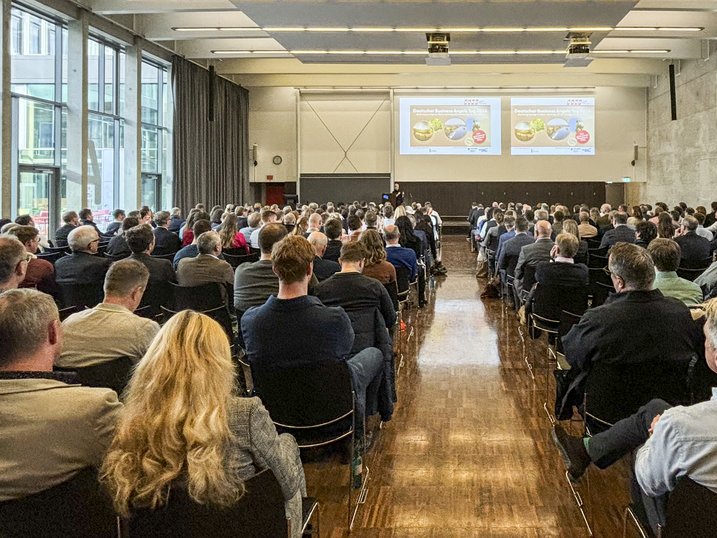Minister President Malu Dreyer and Minister of Science and Health Clemens Hoch: Rhineland-Palatinate introduces the right to award independent doctorates to its universities of applied sciences with a strong research record
The universities of applied sciences (HAW) in Rhineland-Palatinate offer a high-quality, innovative range of degree courses geared toward practical work experience. At the same time, they are drivers of applied research and transfer with the business sector. As an important part of the higher education landscape, it is particularly important to the state to support the HAW in building their profiles and to create a framework that will make them competitive and attractive for students, young scientists, and professors in the future. This also includes offering students at universities of applied sciences the opportunity to pursue a doctorate.
“For our research-intensive universities of applied sciences, we will introduce the right to award doctorates on their own in Rhineland-Palatinate. In doing so, we are taking an important step forward, as our universities provide the impetus for innovation, educate skilled professionals and executives, and are immigration magnets for bright minds. We want to further strengthen this position of the HAW, as well as honor it, by granting them the right to award doctorates,” announced Minister President Malu Dreyer at the University Rectors’ Conference in Trier on May 8. “Before the end of this legislative period, we will create the legal and organizational basis for the right to award independent doctorates and consequently the prerequisites for our universities of applied sciences to hold their own in the competition for ideas and talent, as well as to help shape social and technological change,” said the Minister President.
Plans call for universities to exercise the right to award doctorates in areas in which they can demonstrate sufficient research excellence. With high-quality doctoral supervision and high standards of quality, excellent doctorates can emerge there in the near future. For this purpose, the Ministry of Science and Health is currently developing a legislative initiative and a smart set of criteria.
“With the right to award doctorates, we are offering young people new opportunities for qualification. Our universities will be able to train specialists who combine theory and practice at a high level. In addition, we continue to support cooperative doctoral studies in Rhineland-Palatinate. For example, the state supports research programs in which doctorates are jointly supervised by universities and universities of applied sciences. For us, this will remain a component of the important interconnections between the different types of higher education institutions,” said Clemens Hoch, Minister of Science and Health.
“The right to award independent doctorates for research-intensive areas at universities of applied sciences will make us even more attractive. With the right to award doctorates, our graduates will be able to fully develop their potential in the future, as we now offer additional opportunities for qualification for our talented up-and-coming scientists in the field of research and development. As a result, we are also ideally fulfilling our mission in Rhineland-Palatinate to train skilled professionals on a high academic level with strong application expertise, enabling us to design innovative, practice-oriented, interdisciplinary, and forward-thinking solutions on a high scientific level for the challenges of the present and the future,” said Prof. Dr. Susanne Weissman, President of Mainz University of Applied Sciences.
The President of Trier University of Applied Sciences, Prof. Dr. Dorit Schumann, also welcomes the establishment of the shared right to award doctorates in research-intensive fields at universities of applied sciences in Rhineland-Palatinate and the announcement in Trier: “The fact that we can now soon expect the right to award doctorates in research-intensive disciplines in Rhineland-Palatinate is great news. The state is energetically pursuing this path with us, and that cannot be taken for granted. The possibility of a doctoral right in doctoral clusters of the HAW undoubtedly increases the attractiveness of studying and research at the universities of applied sciences in the state, as well as at our university in Trier, with its strong research capabilities. This development is a significant gain for our state, which is competing for the brightest minds.”
The basis for the reform is an amendment to the Higher Education Act, which the Ministry of Science and Health will propose to the state parliament. Together with the HAW, the Ministry of Science and Health will define criteria for awarding doctoral degrees. Over the next few years, doctoral clusters will be created on this basis, which will bring together the research strengths of the individual universities of applied sciences, ensure the quality of the processes, and create a strong environment for high-quality doctoral degrees.




